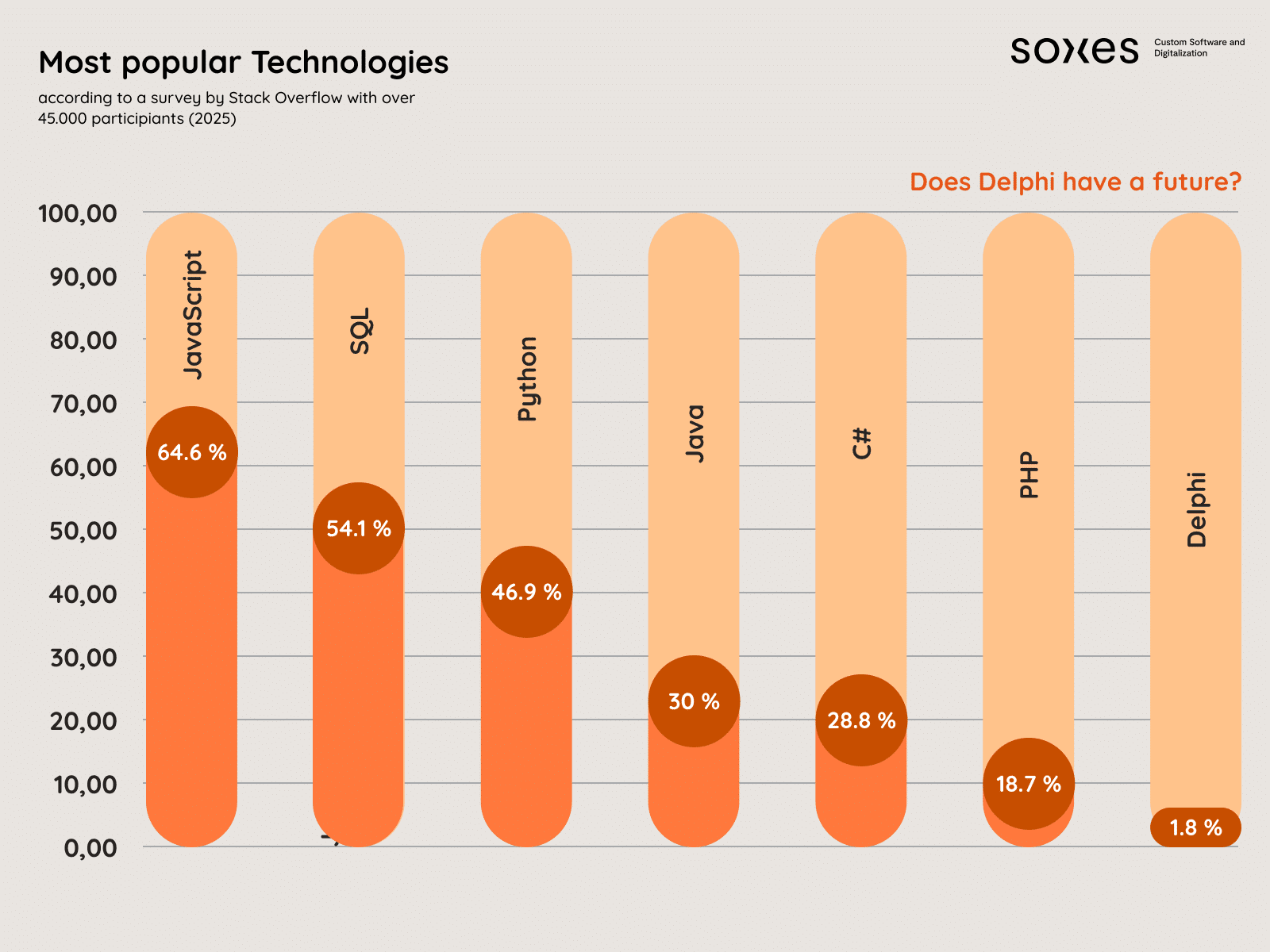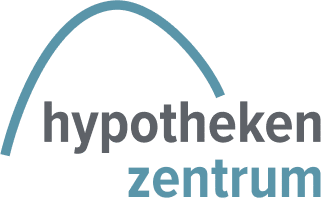Only around two per cent of developers still actively work with Delphi, which is a clear warning sign for companies that continue to rely on this technology.
In this article, you will learn:
- What technical and economic risks legacy code in Delphi causes
- What strengths Delphi still offers and where it clearly reaches its limits today
- Practical options ranging from Delphi modernisation to alternatives such as .NET or Python
Is your business software still based on Delphi? Are you having difficulty finding qualified Delphi developers? Is the only developer who could manage the Delphi application gone?
We can step in, take over your Delphi software and develop it further to make it future-proof.





















































